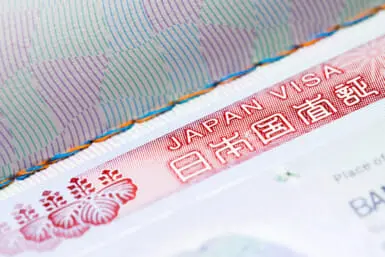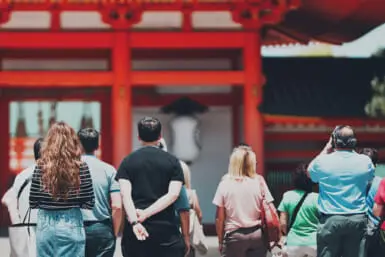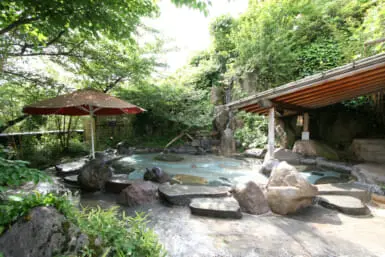Tokyo is a large, complex city. None of us will ever live anywhere larger and more complex.
It could be argued that there are spots on earth where more bodies dwell in ever-expanding circles around entities known as “cities”—and those entities expand to encompass the whole because no one is interested in drawing a boundary line in the dirt—but those places are not real cities with self-sustaining infrastructures.
It could also be argued that there are more complex places where a wrong turn might land you in a canal, a black hole or an entirely different nation, but that’s still not Tokyo. Tokyo is large and complex.
I was musing about that the other day. (“Musing” is a form of philosophical daydreaming designed to keep one, faced by the reality of circumstance, from going completely berserk.)
My wife and I for the last several years take the exact same route by car from our house to Daikanyama between 8:30 and 9 each business morning. We zap along Yamate Dori in the company of six or seven million trucks, buses, taxis and private autos. Added to the mix are six or seven million lunatics on motorcycles, scooters and bicycles—whipping in and out of traffic as if reaching their goals was a matter of life or death. (In a way, I think it is.)
For the first few months of this odyssey, I drove along in terror between bouts of severe impatience and wheel-slamming frustration. Trucks the size of small buildings would cut us off, taxis would stop in the middle of the road for fares and the three bus lines servicing the route had different pick-up points (meaning things backed up behind them if we misjudged their lane-blocking stops).
Making matters more complicated, Yamate Dori is undergoing major reconstruction— parts of subway lines are going underneath it, the road itself is being widened and, for all I know, airport runways are being built on the straight stretches. All this means construction vehicles, traffic detours and arm-waving, red-stick people abound. In a word, it’s big and complex “madness.”
But wait a minute. My wife noticed this first. No matter what happens enroute, we always arrive (at least 99 percent of the time) exactly as planned.
Not only that, those “six or seven million” other vehicles are not all part of an anonymous horde. We now recognize 30 or 40 other “regulars” along the way—the guy in the red Volvo, the girl with a car like ours but retro-fitted to look more like a classic MG than a classic MG, the two guys in a truck who deliver plants, the couple with the female member applying make-up using the rear-view mirror (for 30 minutes at least), the van with the “Life Now We Hope” on the back and the guy who sings to himself behind the shaded windows of a Toyota Mark II.
There are certainly more “regulars” that we haven’t got around to noticing yet. Maybe most people surrounding us are in that category. In fact, given the potential for chaos, traffic does move smoothly—now that I recognize the maneuvers for maintaining the flow. The same people doing the same things at the same time? That’s small town stuff.
Along the sidewalks are more “regulars”—the toupee brothers who walk along supporting each other with a bicycle one of them pushes, six skinny girls on platform shoes waiting for buses, a tall and elegant African woman in marvelous gowns, a lady with three little kids who appear to be stuffed dolls and a pretty young woman with an unfortunate wine-colored birthmark which she attempts to cover with scarves and hair-styles. (She is so regular that we can tell when we’re behind schedule by her location along the sidewalk.) Small town stuff.
We duck into the same coffee shop before stopping at the office. The girls in there are already preparing our cups and donuts as we blast through the front door. I drop off my laundry next door—I’ve been doing it so long at that place that the guy puts the clean shirts in the back seat of my car when they’re finished. That is small town stuff.
It becomes obvious that going to the same barber shop, the same yakitori joint and the same beer store makes one a regular over the years. In that sense, Tokyo is a smaller town than many other places I’ve ever lived. That now applies, I realize, along Yamate Dori between 8:30 and 9 each morning.
And yesterday, almost one year to the minute, I was caught again making an illegal right turn off that street near my house. The cop remembered my name. I remembered his name. We laughed about it. He gave me another ticket.
Small town. Son of a bitch.
Updated On April 11, 2017









